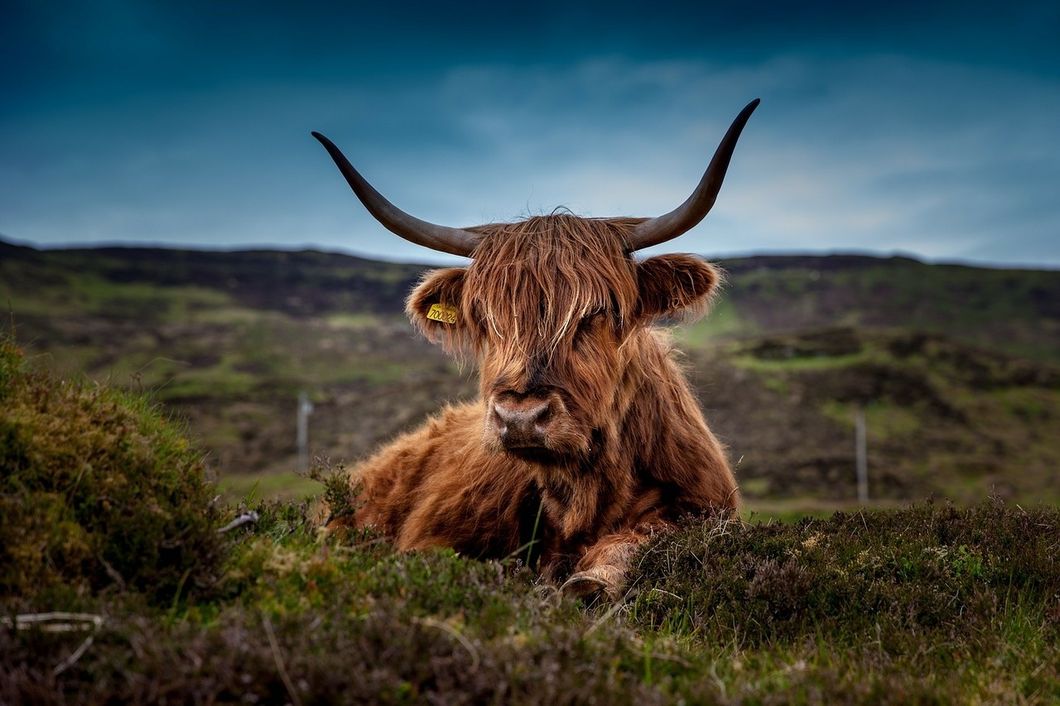When I was a kid, I wanted to be a farmer. I grew up on a small property right in the middle of a cow pasture on my grandfather's farm. When I was a small kid, I spent a lot of time playing around the pasture and visiting my grandparents on the farm. This rural aesthetic and the influence of my family led me to an early understanding of country music. I used to adore performers like Alan Jackson and Hank Williams Sr. and I loved the old country cowboy style they had in their dress and music.
Of course, when I entered the final months of my sophomore year of high school, I discovered the inner emo in me. It was nothing but Black Veil Brides, Escape the Fate, and Falling in Reverse in my phone's music library. Recently, however, I have come to return to my roots in country music and appreciate the complexity and beauty of the simple structure and meaning of it.
I will say, however, that there are clearly some forms of country music that are of much higher quality and much more meaningful experience than others. I have a dislike for newer forms of country that fuse hip hop elements with traditional country instruments. I don't hate those who enjoy this type of music; that's their prerogative. It's just something that I am personally not attracted to.
I think that if you really study some of the older country stars like Conway Twitty, Johnny Cash, and Hank Williams Sr., you really can find in the lyrics tales of sorrow, hardship, and love that really strike deep in the core of human existence. Take, for example, the song "Hello Darlin'" by Conway Twitty. When you really listen to the words of the song, it tells a tear-jerking tale of a man who comes to meet a former lover and find out that she's doing just fine without him. The regret of his past really shines through Twitty's deep baritone vocals and emotional cadence of his vocal delivery.
Alan Jackson's work features many similar themes to that of older country music, too. His work is a prime example of how country music can evolve but still keep in touch with its roots in blues, western, and folk music.
I find that the real beauty in country music is really in just how simple the songs are. There's no classical poetry or rhyme scheme. It's just feelings and simple words that can be no plainer than they are in the music. It's a refreshing take on emotional music and experience that isn't quite found enough in a lot of other forms of music.
Musically and instrumentally, country music is much more complex than one would think. When you hear country music, there's not a lot of guitar shredding or drum solos, but if you take a look at the actual sheet music, you'll find that the chord progressions and solos that are there are quite technical compared to the simple nature of the actual tunes.
Take Brad Paisley; his music features perhaps the most technical guitar parts I've ever heard in country songs. The solos are simply crafted, but technical and interesting on the level of solos made and written by the likes of Eric Clapton, Jimi Hendrix, and even Eddie Van Halen at times. What really ties the technicality to the simple country roots is the smartly crafted chord progressions of the main motifs of the songs.
The stereotypical country music is that of beer, tractors, beautiful girls, and farming, but if you pierce the veil of that stereotype, there really is a plethora of beautiful music that gives one unique experience of emotion and feeling.












